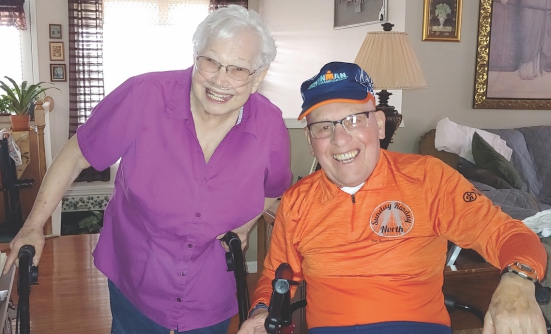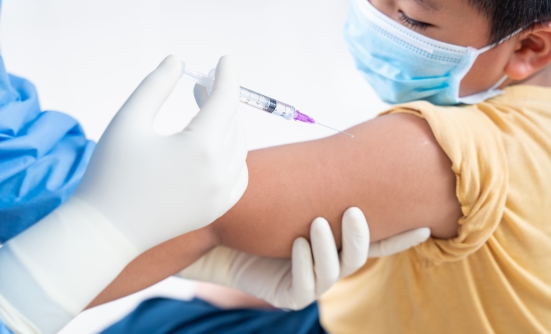Increasing information has shown that COVID-19 infection is not just a respiratory illness. Many patients with the novel coronavirus also have digestive or gastrointestinal (GI) symptoms that may cause further complications in patients with cancer.
During the early days of the COVID-19 pandemic, the illness was thought to cause a fever and mostly respiratory symptoms affecting the lungs, including a cough and shortness of breath. But a recent study conducted in several hospitals showed that the majority (two-thirds) of patients with COVID-19 infection in the United States have had stomach or other GI symptoms, and these sometimes appeared before or instead of any other symptoms, such as fever or cough.1
Early reports from China also described GI symptoms in as many as half (50%) of patients with COVID-19 infection.2
Early concerns for patients with cancer were that they were more vulnerable to infection, and that they disproportionately had severe respiratory symptoms, especially in some patients with lung cancer, who may already have breathing difficulties.
Are the GI Symptoms from Cancer or from COVID-19?
Now, based on recent studies, experts are adding the following 2 new concerns for patients with cancer to be aware of:
- Patients with GI or gastric cancers may have more severe symptoms, such as nausea and diarrhea
- Patients with cancer who have GI symptoms may need to determine whether those symptoms, such as nausea and diarrhea, are related to their cancer or can they potentially be COVID-19 infection
It may be very challenging to differentiate between GI symptoms caused by cancer and those caused by COVID-19.
Many patients with cancer have nausea, vomiting, weight loss, and other digestive issues from cancer or from cancer treatments, such as chemotherapy or radiation therapy. In fact, GI symptoms are so common among patients with cancer, that many may have a GI doctor on their care team,3 even if they don’t have a GI cancer (such as colorectal or stomach cancer).
Now, research indicates that GI symptoms are also common in patients with COVID-19. The researchers of the recent study of GI symptoms in US patients with COVID-19 published in Gastroenterology found that about two-thirds (61.3%) of patients had at least one GI symptom, such as loss of appetite, diarrhea, or nausea.1
In addition, the GI symptoms appeared before respiratory symptoms in 14% of patients in that study, and for 20% of the patients, the primary symptom was a GI-related symptom.1
In a recent article published by Reuters Health that discusses the study mentioned above that was published in Gastroenterology,1 one of the primary investigators of that study suggested that “COVID-19 should be considered in patients presenting with new- or acute-onset digestive symptoms, even in the absence of respiratory complaints, fevers, or other typical COVID-19 symptoms.”4
Patients with GI Cancers
Patients with GI cancers who are infected with COVID-19 may also be more likely to have severe nausea, loss of appetite, and diarrhea from the coronavirus. These patients may need early hospitalization to manage dehydration and prevent kidney damage. We advise patients with cancer to seek medical attention as soon as they have any respiratory or GI-related symptoms.
It is recommended that patients with cancer take extra precautions, such as isolating themselves from others, including family members, if anyone in the household suspects that they have the novel coronavirus, or that they might have been exposed to someone with COVID-19 caused by the coronavirus.
The CDC (Centers for Disease Control and Prevention) provides helpful COVID-19 guidance on ways for people to protect themselves and their family members who are living in the same household.5
References
- Redd WD, Zhou JC, Hathorn KE, et al. Prevalence and characteristics of gastrointestinal symptoms in patients with Severe Acute Respiratory Syndrome Coronavirus 2 infection in the United States. Gastroenterology. April 22, 2020 (online first).
- Pan L, Mu M, Yang P, et al. Clinical characteristics of COVID-19 patients with digestive symptoms in Hubei, China: a descriptive, cross-sectional, multicenter study. American Journal of Gastroenterology. 2020;115(5):766-773.
- Cancer Treatment Centers of America. Why do I have a gastroenterologist on my cancer care team? April 3, 2018. www.cancercenter.com/community/blog/2018/04/why-do-i-have-a-gastroenterologist-on-my-cancer-care-team.
- Boggs W. Gastrointestinal symptoms common in U.S. COVID-19 patients. Reuters Health. April 30, 2020. www.reuters.com/article/health-coronavirus-gi-symptoms/gastrointestinal-symptoms-common-in-u-s-covid-19-patients-idUSL1N2CI1ZR.
- Centers for Disease Control and Prevention. Coronavirus disease 2019: living in shared housing. Updated July 2, 2020. www.cdc.gov/coronavirus/2019-ncov/daily-life-coping/shared-housing/index.html.
Key Points
- During the early days of the COVID-19 pandemic, the illness was thought to cause a fever and mostly respiratory symptoms affecting the lungs
- A recent study conducted in several hospitals showed that the majority (two-thirds) of patients with COVID-19 infection in the United States have had stomach or other GI symptoms
- GI symptoms with COVID-19 sometimes appear before or instead of any other symptoms, such as fever or cough
- Patients with GI or gastric cancers who have COVID-19 may have more severe symptoms, such as nausea and diarrhea
- Patients with cancer often have GI symptoms, such as nausea and diarrhea, and need to know whether these are related to the cancer or to COVID-19 infection
- Patients with GI cancers who are infected with COVID-19 may be more likely to have severe nausea, loss of appetite, and diarrhea from the infection
















